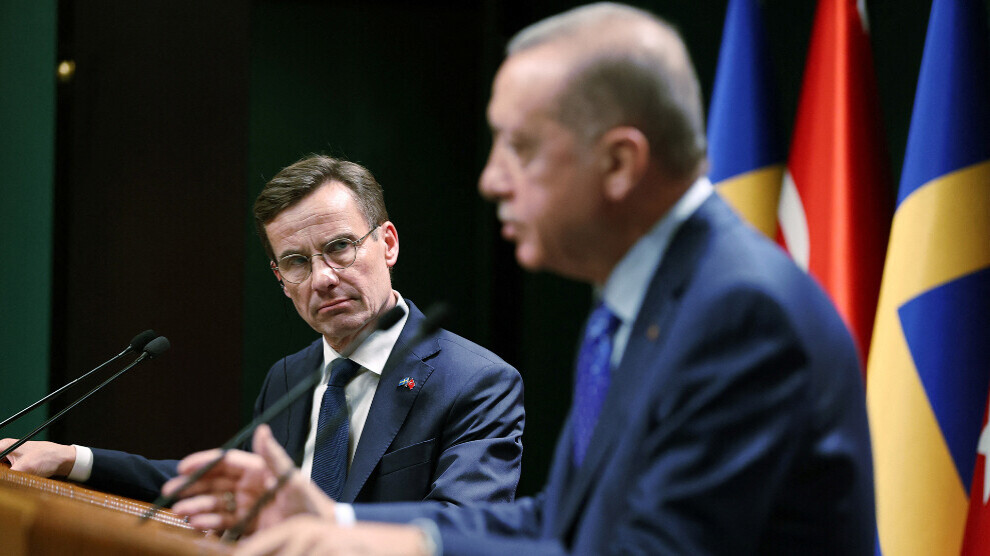Sweden to extradite a Turkish citizen
Sweden extradites another Turkish citizen, taking another step towards Ankara. The extradition of alleged criminals is one of the issues over which the Erdogan regime is blocking Sweden's accession to NATO.
Sweden extradites another Turkish citizen, taking another step towards Ankara. The extradition of alleged criminals is one of the issues over which the Erdogan regime is blocking Sweden's accession to NATO.

Sweden has agreed to the extradition of a Turkish citizen demanded by Ankara against the background of Turkey's continued rejection of the country's planned accession to NATO. It concerns 29-year-old Ömer Altun, who was sentenced to 15 years in prison in Turkey for fraud, the Swedish Ministry of Justice explained. Stockholm, on the other hand, refused to extradite a Swedish citizen accused by the Turkish judiciary of membership in a "terrorist organisation".
The extradition of persons wanted by the Turkish judiciary is one of the points of contention over which Turkey has so far refused to agree to Sweden's NATO membership application. In general, Ankara is demanding a tougher approach from the government in Stockholm against people who are considered "terrorists" in Turkey. These are mainly opposition members in exile who sought protection from political persecution in Sweden, many of them from the Kurdish spectrum. They are being used as bargaining chips for a "yes" to the Nordic country's NATO accession.
A prerequisite for Altun's extradition, which has now been granted, is that his case be retried in Turkey. The Swedish Ministry of Justice only agreed after the Supreme Court had given the green light for the extradition. From the government's point of view, "nothing stands in the way" of the extradition, according to the written decision issued on 30 March, which is available to the AFP news agency.
According to Swedish broadcaster SVT, Altun has been in pre-trial detention since September. The length of the prison sentence imposed on him stems from five counts of aggravated fraud, a report says. However, the man calls this a pretext for his extradition. According to him, there are political reasons why Turkey wants him handed over. Even in the Supreme Court ruling, Altun is accused of belonging to the movement of the Islamist preacher Fethullah Gülen. Ankara holds the organisation of Recep Tayyip Erdoğan's disgraced political mentor responsible for the allegedly faked pseudo-coup of 2016.
However, the Stockholm government did not grant the extradition request for 51-year-old Mehmet Zakir Karayel, who is accused by the Turkish judiciary of being a member of an "armed terrorist organisation" - meaning the Gülen movement. "A Swedish citizen may not be extradited," the justice ministry wrote in justification. There are dozens of other names on the list of people in Sweden wanted by Ankara. Among them is the author, human rights activist and publisher Ragıp Zarakolu.
Sweden has agreed to at least two Turkish extradition requests since the joint application with Finland for NATO membership. However, Stockholm rejected the extradition of several people wanted by the Turkish judiciary. One of them is Bülent Keneş, the former editor-in-chief of the Turkish newspaper "Zaman". Ankara also accuses him of involvement in the so-called coup attempt seven years ago.
In May 2022, Sweden, at the same time as Finland, abandoned its decades-long policy of military neutrality after the Russian war of aggression against Ukraine and applied for membership in NATO. Finland's admission was finally approved by the Turkish parliament at the end of March, and as of this week the country is officially part of the Western defence alliance. Besides Turkey, Hungary has so far also been opposed to Swedish NATO membership.